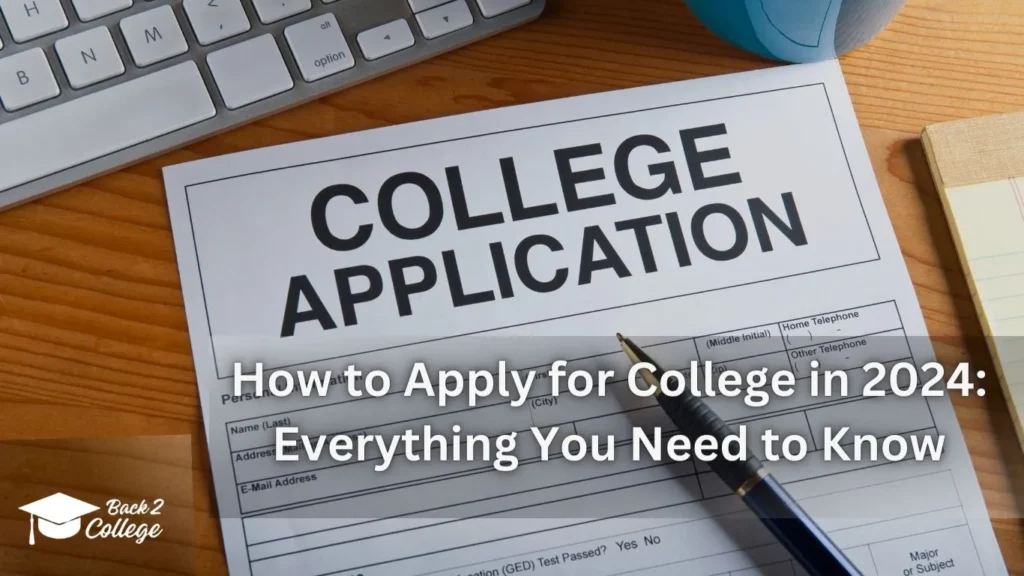Thank You For Letting Us Help You With Going Back To College!
We’re honored to support you as you take this important step towards achieving your academic and career goals. Whether you’re just starting out or returning after a break, we’re here to provide the resources, tools, and encouragement you need to succeed. Your dedication to continuing your education is inspiring, and we’re thrilled to be with you every step of the way.

The Benefits of Going Back to College: Why It’s Never Too Late to Pursue Your Education
Returning to college as an adult can be a transformative experience, offering a host of benefits that extend beyond the classroom. Whether you’re looking to advance your career, switch fields, or simply fulfill a lifelong dream, going back to college is a powerful way to invest in yourself and your future. Here’s a look at the key benefits of returning to college as an adult.
1. Career Advancement
One of the most compelling reasons to return to college is the potential for career advancement. In today’s competitive job market, additional education can set you apart from others and provide the credentials needed to move up the career ladder. Earning a degree or certification can open doors to promotions, higher-paying positions, and greater job security. Many employers value the dedication and perseverance that adult learners demonstrate, making you a more attractive candidate for leadership roles.
2. Skill Enhancement and Knowledge Acquisition
Returning to college allows you to acquire new skills and knowledge that are directly applicable to your profession or desired career path. Whether it’s mastering the latest technology, learning advanced business strategies, or gaining expertise in a specific field, continuing your education helps you stay current and relevant in an ever-evolving job market. These new skills can also increase your confidence in your abilities, making you more effective and adaptable in your job.
3. Career Transition Opportunities
For many adults, returning to college is a chance to pivot to a new career. Whether you’re looking to enter a different industry or pursue a passion that was put on hold, going back to school provides the training and credentials needed to make a successful transition. Adult learners often bring a wealth of real-world experience to their studies, which can be a significant advantage in understanding complex concepts and applying them in practical ways.
4. Personal Growth and Fulfillment
The pursuit of education as an adult is not just about career benefits—it’s also an opportunity for personal growth. College courses challenge you to think critically, solve problems, and engage with new ideas. The intellectual stimulation can be incredibly rewarding, helping you grow as an individual and gain a deeper understanding of the world around you. Additionally, achieving a degree or certification can be a fulfilling personal accomplishment that boosts your self-esteem and sense of purpose.
5. Networking and Professional Connections
Going back to college as an adult also provides valuable networking opportunities. You’ll have the chance to connect with professors, classmates, and industry professionals who can offer guidance, mentorship, and potential job leads. These connections can be instrumental in advancing your career, providing support during your studies, and helping you navigate the transition to a new field.
6. Flexible Learning Options
Today’s colleges and universities offer a range of flexible learning options tailored to the needs of adult learners. Whether you prefer online courses, evening classes, or part-time study, there are programs designed to fit your busy schedule. This flexibility allows you to balance your education with work, family, and other responsibilities, making it more feasible to return to school and achieve your goals.
7. Long-Term Financial Benefits
While going back to college requires an investment of time and money, the long-term financial benefits can be significant. Individuals with higher levels of education typically earn more over their lifetime compared to those with only a high school diploma. Additionally, having a degree can provide greater job stability and reduce the likelihood of unemployment during economic downturns.
8. Setting a Positive Example
Finally, returning to college as an adult sets a powerful example for others, especially if you have children or younger family members. Your commitment to lifelong learning can inspire them to value education and pursue their own academic goals. It demonstrates that it’s never too late to chase your dreams, and that perseverance and hard work can lead to success at any stage of life.

How to Handle Going Back to School as an Adult: A Step-by-Step Guide
Going back to school as an adult can be both exciting and challenging. Balancing academics with work, family, and other responsibilities requires careful planning and dedication. Here’s a step-by-step guide to help you navigate the process and make your return to college as smooth as possible.
1. Set Clear Goals
Before you begin your educational journey, it’s important to set clear and realistic goals. Ask yourself why you want to go back to school and what you hope to achieve. Are you aiming to advance your career, switch fields, or gain personal satisfaction? By defining your objectives, you’ll have a clear direction and motivation to stay focused throughout your studies.
2. Research Your Options
With a variety of programs available, it’s essential to find the one that best fits your needs and goals. Research schools, degree programs, and certifications to determine which align with your career aspirations. Consider factors such as program reputation, faculty expertise, and curriculum content. Additionally, look into online courses or part-time programs if you need flexibility in your schedule.
3. Create a Financial Plan
Paying for college as an adult can be a significant concern, but with proper planning, it’s manageable. Start by exploring financial aid options, including scholarships, grants, and student loans. Many schools offer financial aid specifically for adult learners. You can also consider employer-sponsored tuition assistance programs or take advantage of tax credits for education expenses. Creating a budget and understanding your financial obligations will help you manage costs effectively.
4. Time Management
Balancing school with work, family, and other commitments requires excellent time management skills. Start by creating a weekly schedule that includes dedicated study time, work hours, and personal responsibilities. Prioritize your tasks and learn to say no to activities that don’t align with your goals. Utilize tools such as calendars, planners, and time management apps to keep track of assignments and deadlines. Remember to also schedule time for self-care to avoid burnout.
5. Seek Support
Don’t hesitate to seek support from family, friends, and colleagues as you embark on your educational journey. Let them know about your goals and how they can assist you, whether it’s by helping with household tasks, providing encouragement, or offering flexibility at work. Additionally, many schools offer resources for adult learners, including academic advising, tutoring, and counseling services. Joining study groups or connecting with fellow adult students can also provide valuable support and motivation.
6. Develop Effective Study Habits
Returning to school after a break may require you to adjust your study habits. Start by finding a quiet and comfortable study space where you can focus without distractions. Break down your assignments into manageable tasks and set specific goals for each study session. Use active learning techniques, such as summarizing information in your own words, creating flashcards, and teaching concepts to others, to reinforce your understanding. Additionally, take advantage of online resources and tools that can enhance your learning experience.
7. Stay Organized
Staying organized is key to managing the demands of college life. Keep all your course materials, notes, and assignments in a designated place, whether it’s a physical binder or a digital folder. Use to-do lists to track your tasks and deadlines, and regularly review your progress to ensure you’re on track. Staying organized will reduce stress and help you stay focused on your goals.
8. Maintain a Healthy Work-Life-Study Balance
Balancing school with work and personal life can be challenging, but it’s important to maintain a healthy equilibrium. Make time for activities that relax and rejuvenate you, such as exercise, hobbies, and spending time with loved ones. Be mindful of your mental and physical health, and don’t be afraid to take breaks when needed. If you find yourself feeling overwhelmed, consider adjusting your course load or seeking help from a counselor or mentor.
9. Stay Motivated and Resilient
Returning to college as an adult requires determination and resilience. There may be times when the workload feels overwhelming or when you doubt your ability to succeed. During these moments, remind yourself of your goals and the reasons you decided to go back to school. Celebrate your achievements, no matter how small, and stay focused on the long-term benefits of your education. Surround yourself with positive influences and keep pushing forward, even when challenges arise.
10. Utilize Campus Resources
Most colleges and universities offer a range of resources to support adult learners. These can include academic advising, career counseling, tutoring centers, writing labs, and libraries. Don’t hesitate to take advantage of these resources—they’re there to help you succeed. If you’re enrolled in an online program, explore the digital resources available, such as online tutoring, virtual study groups, and discussion forums.

Effective Study Tips and Strategies for Returning Adult Students
Returning to college as an adult can be a daunting yet rewarding experience. Balancing school with work, family, and other responsibilities requires not only dedication but also effective study habits tailored to your unique situation. Whether you’re looking to excel academically, manage your time better, or simply make the most of your educational journey, here are some tips and strategies to help you succeed as a returning adult student.
1. Set Clear and Achievable Goals
The first step to successful studying as an adult student is setting clear and achievable goals. Define what you want to accomplish in your academic journey, whether it’s earning a degree, gaining new skills, or advancing your career. Break down your long-term goals into smaller, manageable milestones. This will help you stay motivated and focused, giving you a sense of progress as you complete each step.
2. Create a Dedicated Study Space
Having a dedicated study space can significantly enhance your concentration and productivity. Choose a quiet, comfortable area where you can focus without distractions. Make sure your study space is well-organized and equipped with everything you need, such as textbooks, a computer, and stationery. A consistent study environment will help condition your mind to switch into study mode whenever you enter that space.
3. Develop a Study Schedule
Time management is crucial for adult students who are balancing multiple responsibilities. Create a study schedule that fits around your work, family, and personal commitments. Consistency is key, so try to study at the same times each week. Use a planner or digital calendar to keep track of deadlines, assignments, and study sessions. By planning your time effectively, you can avoid last-minute cramming and reduce stress.
4. Use Active Learning Techniques
Active learning is more effective than passive reading or note-taking. Engage with the material by summarizing information in your own words, asking questions, and discussing concepts with others. Techniques such as creating flashcards, teaching the material to someone else, or applying what you’ve learned to real-world scenarios can help reinforce your understanding. The more actively you engage with the content, the better you’ll retain it.
5. Break Down Study Sessions
Long study sessions can be overwhelming and lead to burnout. Instead, break down your study time into shorter, focused intervals. The Pomodoro Technique, which involves studying for 25 minutes followed by a 5-minute break, can be particularly effective. After four intervals, take a longer break to recharge. This approach helps maintain focus and prevents fatigue, making your study time more productive.
6. Prioritize Your Tasks
Not all tasks are equally important, so it’s essential to prioritize them effectively. Start with the most critical assignments or those with the nearest deadlines. Use a to-do list to organize your tasks by priority, and tackle the most challenging ones first when your energy levels are highest. This way, you’ll ensure that the most important work gets done and reduce the likelihood of falling behind.
7. Take Care of Your Health
Maintaining your physical and mental health is crucial for effective studying. Make sure to get enough sleep, eat a balanced diet, and exercise regularly. These habits boost your energy levels, improve concentration, and enhance memory. Additionally, practice stress management techniques such as mindfulness, meditation, or deep breathing exercises to stay calm and focused during your studies.
8. Seek Support When Needed
Don’t hesitate to seek support from family, friends, or classmates. Let those around you know about your academic commitments and how they can help, whether it’s by providing encouragement, helping with household tasks, or offering study tips. Many colleges also offer resources such as tutoring centers, academic advising, and counseling services. If you’re struggling with a particular subject or feeling overwhelmed, reach out for help—there’s no need to go it alone.
9. Embrace Technology
Take advantage of the technology available to enhance your studying. Online tools such as flashcard apps, digital note-taking platforms, and study planners can help you stay organized and efficient. Additionally, many universities offer online libraries, research databases, and virtual study groups that you can access from the comfort of your home. Embracing these resources can make studying more convenient and effective.
10. Stay Motivated and Reflect on Your Progress
Maintaining motivation over the long term can be challenging, but it’s crucial for your success. Regularly remind yourself of your goals and why you chose to return to college. Reflect on your progress and celebrate your achievements, no matter how small. Keeping a journal or setting aside time to review what you’ve learned can help reinforce your sense of accomplishment and keep you motivated to continue.

Frequently Asked Questions About Going Back to College
1. Is it too late for me to go back to college?
Answer: It’s never too late to pursue your education. Many adults return to college for various reasons, such as advancing their careers, switching fields, or fulfilling personal goals. Colleges and universities increasingly offer flexible programs designed to accommodate adult learners, including online courses and part-time options, making it easier than ever to go back to school at any age.
2. How can I balance school with work and family responsibilities?
Answer: Balancing school with work and family requires careful time management and organization. Create a study schedule that fits around your existing commitments, and prioritize your tasks to ensure you meet deadlines without feeling overwhelmed. Don’t hesitate to seek support from your employer, family, or friends, and take advantage of flexible learning options, such as online courses, that allow you to study at your own pace.
3. What financial aid options are available for adult students?
Answer: Adult students have access to various financial aid options, including federal and state grants, scholarships, student loans, and employer-sponsored tuition assistance programs. Many colleges also offer financial aid specifically for non-traditional students. It’s important to fill out the Free Application for Federal Student Aid (FAFSA) to determine your eligibility for federal aid. Additionally, research scholarships that cater to adult learners or those returning to education after a break.
4. Will my previous college credits transfer?
Answer: In many cases, previous college credits can transfer, especially if they were earned from an accredited institution. However, the transferability of credits depends on factors such as how long ago they were earned, the grades received, and how they align with your new program’s requirements. Contact the admissions office at the college you plan to attend for an evaluation of your transcripts to determine which credits may transfer.
5. How do I stay motivated and manage stress as an adult student?
Answer: Staying motivated as an adult student involves setting clear goals, breaking down your tasks into manageable steps, and regularly reflecting on your progress. It’s important to maintain a healthy work-life-study balance by prioritizing self-care, getting enough rest, and practicing stress management techniques like mindfulness or exercise. Connecting with fellow adult learners for support and encouragement can also help you stay focused and motivated throughout your academic journey.




























